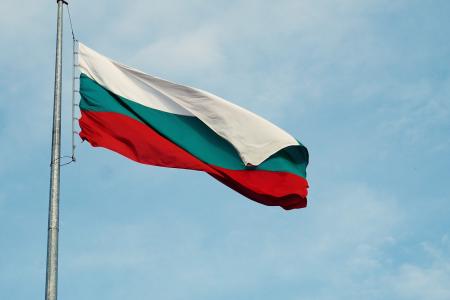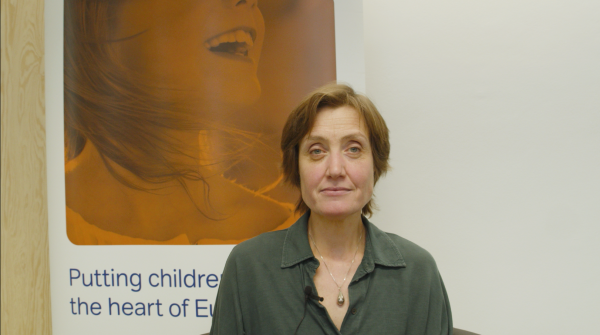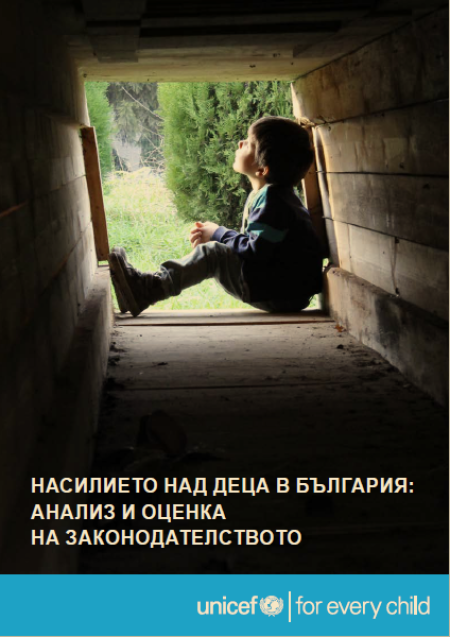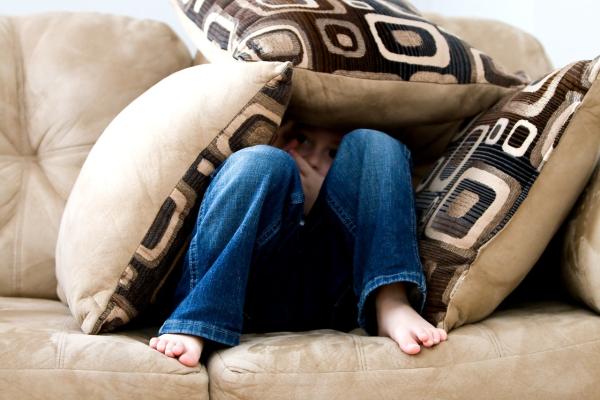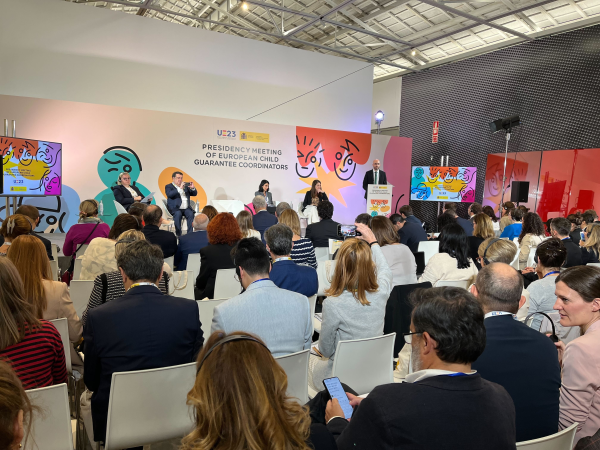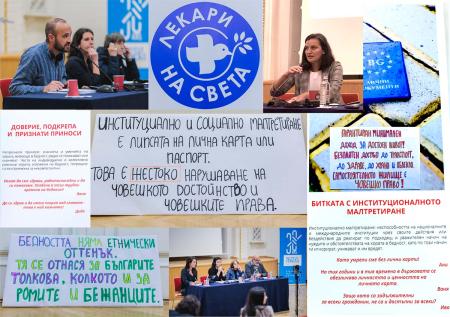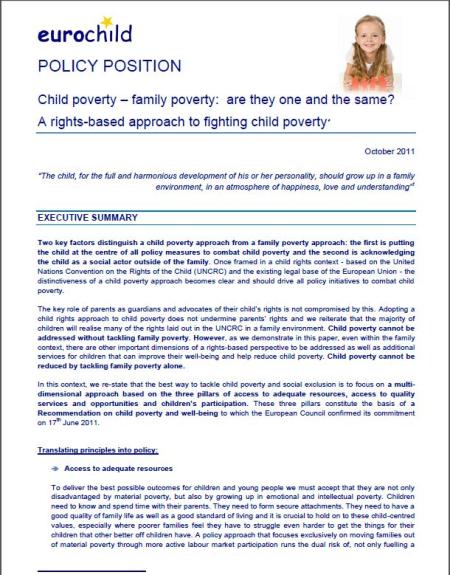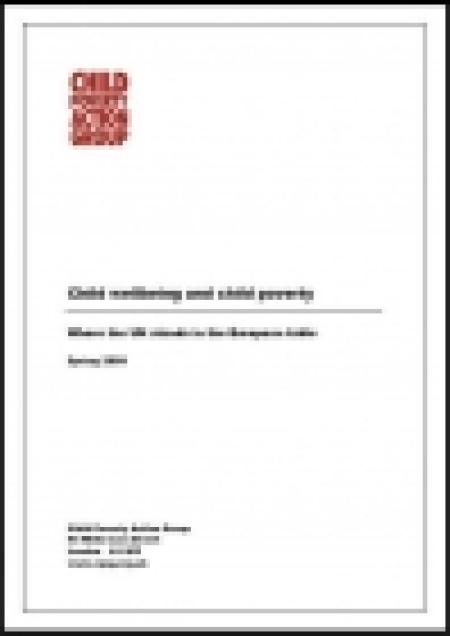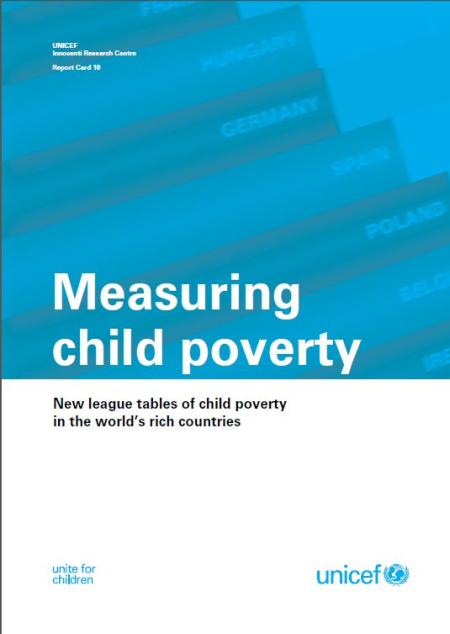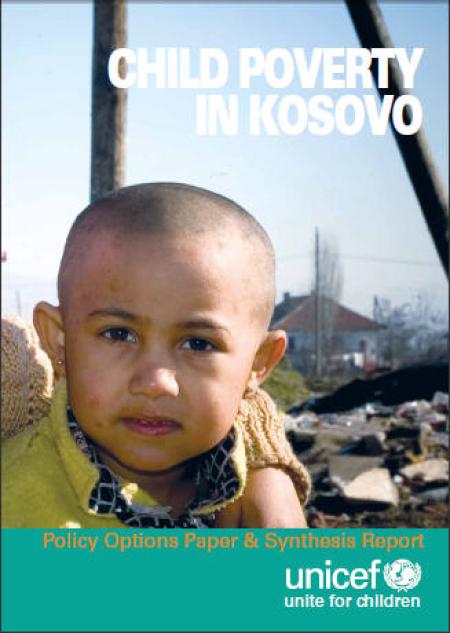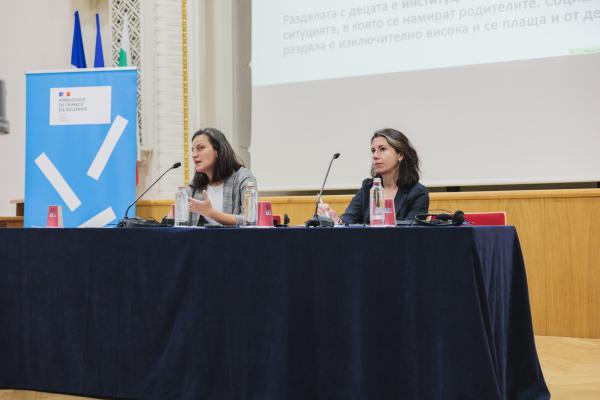
How Eurochild and the National Network for Children influenced the Bulgarian Child Guarantee National Action Plan to include measures to help families in need
Eurochild has a long-standing cooperation with its Bulgarian members and we are particularly proud to trace down the progress made on the design and implementation of the National Action Plan (NAP) for the European Child Guarantee Initiative in partnership with the National Network for Children (NNC), Bulgaria. From our first initiative that aimed to influence the design of the European Child Guarantee Initiative, to our current work on strengthening the prevention of child-family separation, we celebrate the work we have achieved jointly, while looking into the future and drawing attention to delivering change where it is most needed.
- The consultations
To start this journey we travel back to 2021, when the preparation and consultation process for the European Child Guarantee took place in Bulgaria. Despite the challenging political situation the country was facing, the National Network for Children, in partnership with the Ministry of Labour and Social Policy, organised six webinars on health care, nutrition, early childhood development, housing, education and high-risk communities.
In line with the objectives set out in the first Tanya’s Dream Fund initiative, Eurochild and NNC supported key civil society actors, experts from various backgrounds, and stakeholders from national and local levels to provide analysis of the situation in their fields of expertise, but also put forward recommendations and concrete suggestions on measures to be included in the National Action Plan. These webinars helped popularise the Initiative and its implementation tools and promoted organizing such thematic events as a good practice. The National Action Plan underlines that it seeks to apply this approach during the implementation stage as well.
- Un/Equal Childhood
In October 2022, the National Network for Children cooperated with UNICEF Bulgaria, For Our Children Foundation (also a Eurochild member), and the Bulgarian Academy of Sciences to present the findings of their joint research Un/Equal Childhood: Deep Dive in Child Poverty and Social Exclusion in Bulgaria, designed to help the Bulgarian government set up priority areas in the National Action Plan. The report also made recommendations on the measures that need to be implemented at national, regional and local levels as a supplement to existing measures that have proven effective in achieving positive outcomes for children.
- Influencing the Child Guarantee National Action Plan
Many of the recommendations outlined during the webinars, as well as the one laid out in the research report in areas such as nutrition, healthcare, education and employment are reflected in the NAP, adopted in November 2022.
For instance, NNC underlined that there is no budget subsidy to support free school meal programs, and the Plan now foresees the Food and Basic Material Assistance Programme 2021-2027 to finance measures to ensure access to healthy nutrition for all children in need. It envisions supporting at least 10,000 children.
In addition, the Plan includes developing a strategy for early childhood development, also an objective of the joint Eurochild and NNC Tanya’s Dream Fun project. Based on NNC suggestions, the Plan also foresees improving the access of children and pregnant women to medical treatment, health care and services, something that NNC has continuously advocated for on regional and national levels. To underscore, as a result of NNC advocacy efforts and data sharing, the Plan recognises how living in poverty and having limited opportunities in childhood affect the child’s life and outlines measures that aim to tackle child poverty through providing financial support for the prevention of child abandonment and supporting reintegration into families.
The National Network for Children insisted on measures related to social work and support to families, parental capacity building, and support for raising children in a family environment, which NNC highlights as the main path to successful deinstitutionalisation and improvement of the well-being of every child in Bulgaria. Due to these efforts, the Plan aims to promote the employment of unemployed parents, something that is a serious prerequisite for children falling into poverty. Although it intends to work on reducing household overcrowding, additional measures need to be implemented to achieve that objective in a way that also prevents family separation.
- Leveraging EU influence to deliver change for families in adversity in Bulgaria
Eurochild and National Network for Children are working together in a new Tanya’s Dream Fund initiative, launched in January 2023, aiming to help strengthen the prevention of child-family separation for families in adversity in Bulgaria and continue monitoring the implementation of the National Action Plan.
- The Award
Last, but certainly not least, we want to congratulate National Network for Children on their “Golden Apple” Award initiative. The distinctions are an acknowledgement of efforts made by various individuals, organizations and institutions on children’s well-being in Bulgaria. Only a few days ago, NNC presented their awards for the thirteenth year in a row to educators, NGO representatives, medical professionals, municipality officials, parliament group representatives and journalists.
Through this award, the National Network for Children aims to promote the need for special attention to children and the respect for their rights at all societal levels, as well as to encourage the exchange of good practices in all areas of children's life and well-being. At the event, NNC also presented their Annual Report Card (soon also available in English).
We applaud the National Network for Children for their ongoing work on the protection of children’s rights and hope to see similar initiatives in other European countries as well. Eurochild is looking forward to upcoming activities with the National Network for Children and to continue seeing our joint efforts delivering change for children and families in Bulgaria.

